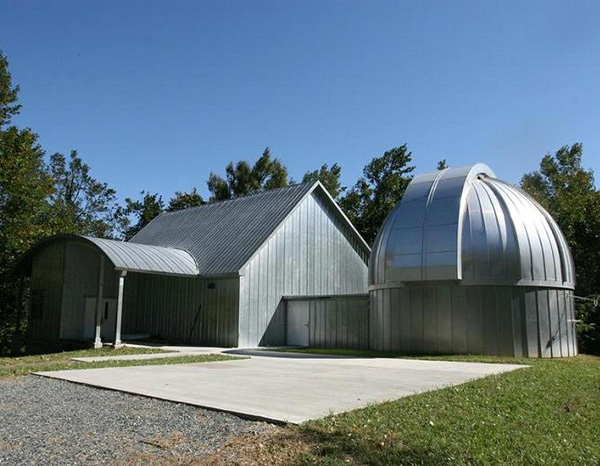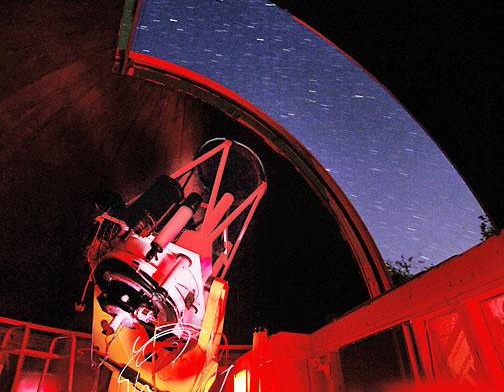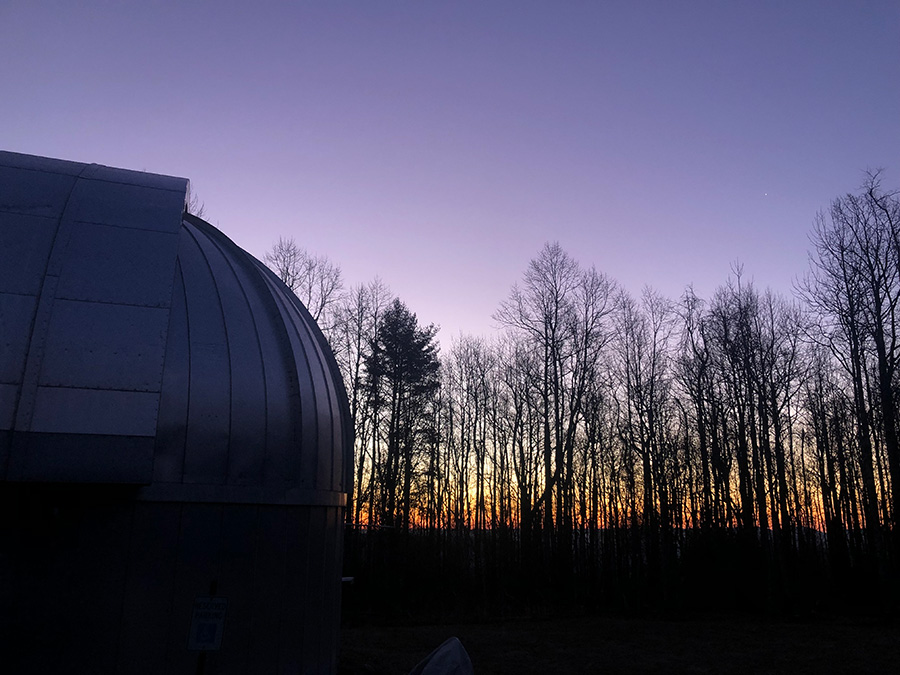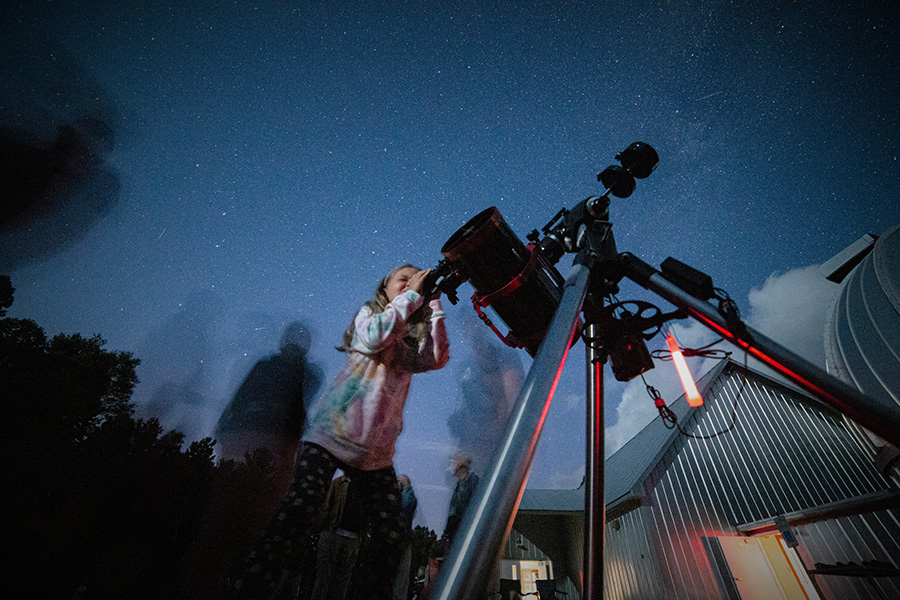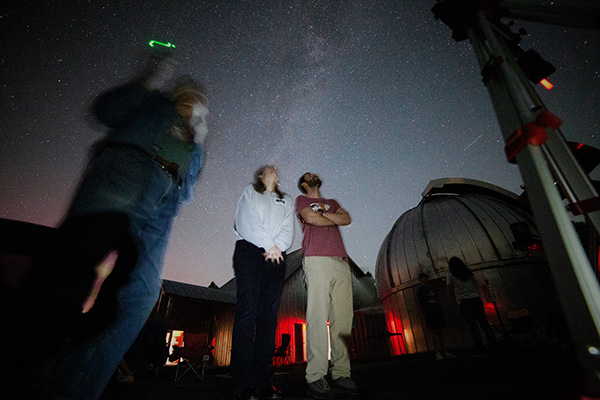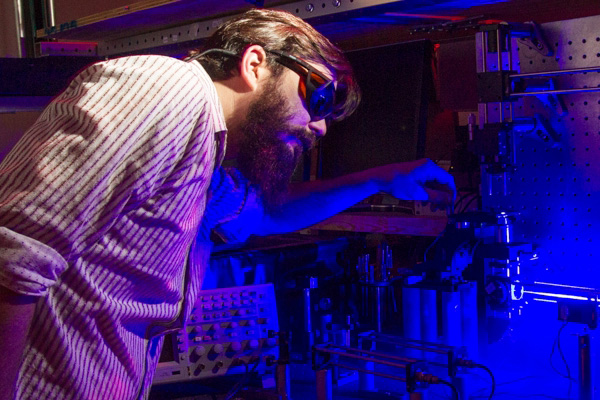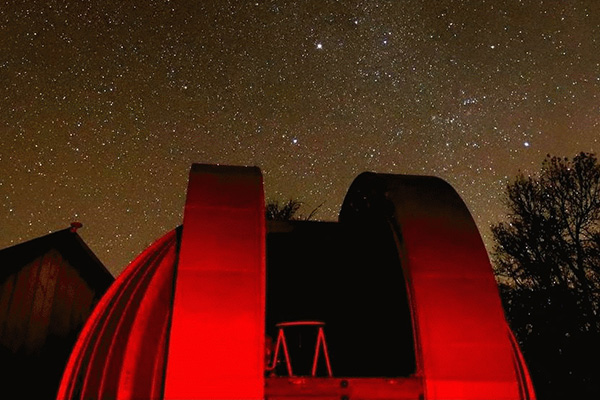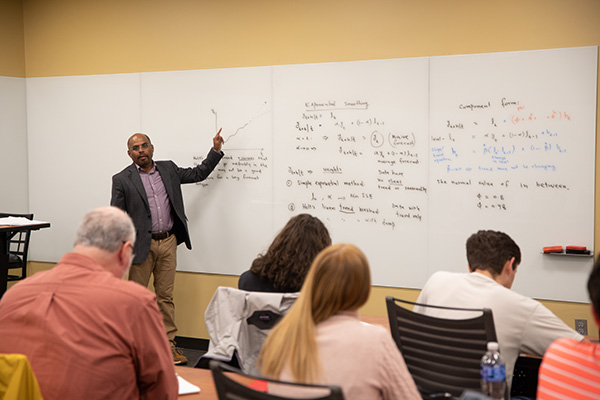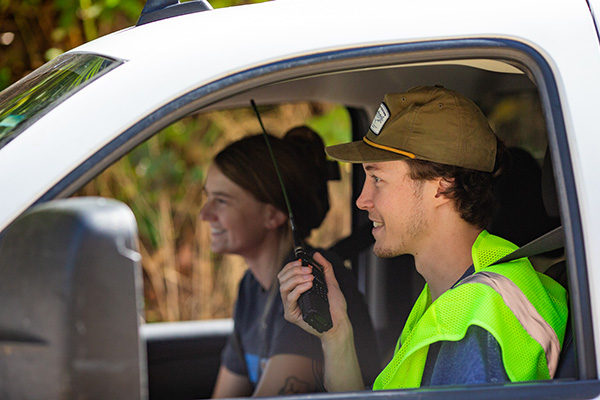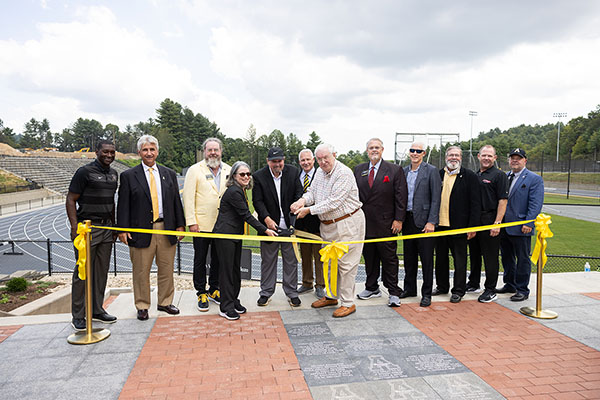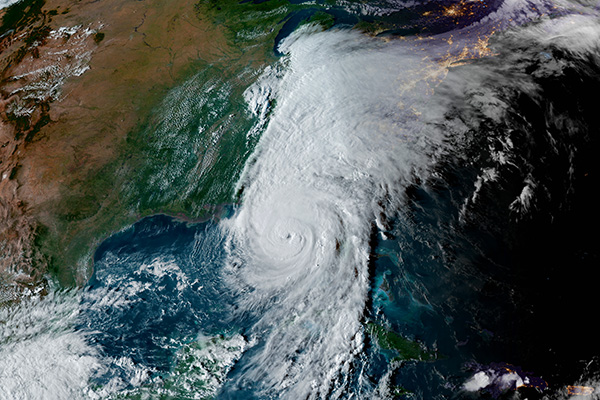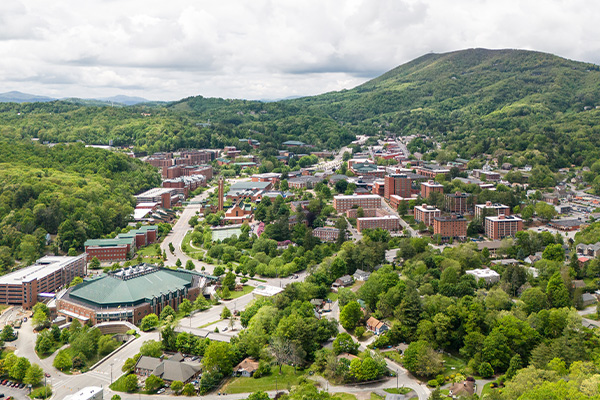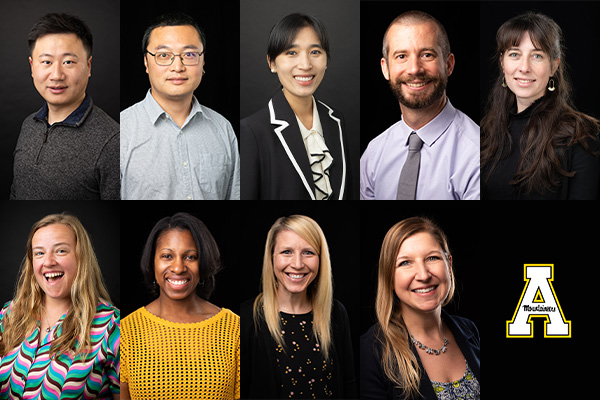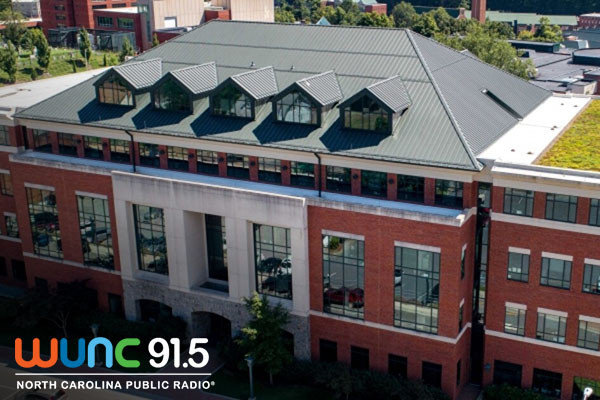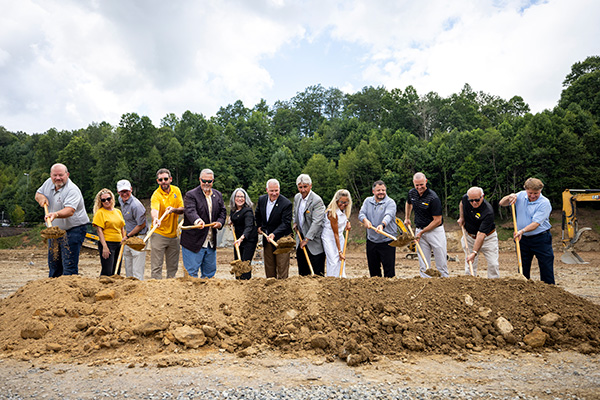BOONE, N.C. — Thanks to a $367,088 grant funded by the National Science Foundation’s Major Research Instrumentation Program, Appalachian State University’s Dark Sky Observatory is receiving major upgrades to its largest telescope — allowing App State astronomers to gain an enhanced view, and a deeper understanding, of the universe.
“We received the 32-inch telescope in 1995, and we bought the original cameras about 15 years ago,” said App State’s Dr. Daniel Caton, Dark Sky Observatory director and professor of physics and astronomy. “Technology moves on, so it’s exciting to get a modern redesign.”
Established in 1981 by the Department of Physics and Astronomy, Dark Sky Observatory is located in a remote area about 20 miles northeast of Boone, providing an ideal setting for astronomical observations. The facility is primarily used by faculty, students and their research collaborators and is equipped with four telescopes, each used regularly for digital imaging and photometry (the measurement of light intensity, as perceived by the human eye). The largest of the telescopes boasts a 32-inch mirror and includes a spectrograph camera.
With the grant, Caton said the department has ordered a new spectrograph camera, comet camera, general imaging camera and filter sets to add to the telescope, as well as a new telescope control system. He said this will allow astronomers and students to better study comets, the color and brightness characterization of nearby stars, the eclipse of distant stars by asteroids in the solar system and much more.
“Being involved in research has been shown to be one of the most important aspects of education for a science major, and these telescope upgrades will provide many opportunities for students pursuing careers in astronomy,” said Caton. “To get the experience of collecting data and analyzing it, and to just get out there and be with the technology, can make a significant impact.”
One of those science majors is Trey Jansen ’23 ’25, of Clayton, a two-time App State alumnus who earned his bachelor’s degree in physics in 2023 and his master’s degree in engineering physics on May 9.
“I want to go into the astronomy field and I’m looking for an engineering job at an observatory, so to gain this kind of experience has been so important,” said Jansen. “I’m really happy about the telescope upgrades, because our telescopes are essential to how we carry out our research.”
Jansen worked with Caton for about five years as a student. When he was in graduate school, he researched an eclipsing binary star, capturing images to collect data and gather information about brightness changes as one star eclipses the other.
Jansen joined Caton and his colleagues on several three- and four-day observations at the facility.
“We’d start observing at sundown and we’d stay up all night. Then we’d go to sleep at dawn at the Lowe’s House — an observers’ quarters used by App State and visiting astronomers, then wake up around noon and do the same thing the next day,” said Jansen. “It’s really special to be part of something like that, and I learned so much.”
Caton serves as the principal investigator on the two-year grant project, working in collaboration with department colleagues and coprincipal investigators Dr. Michael Briley, professor and director of App State’s engineering physics program; Professor Emeritus Dr. Richard Gray; and assistant professor Dr. Adam McKay.
Spend an Evening at Dark Sky Observatory
Since 2011, the Department of Physics and Astronomy has held Evening at Dark Sky Observatory events, offering the public an opportunity to tour the observatory’s facilities, view celestial objects using telescopes and more. At the monthly events, App State astronomers provide presentations and are available to discuss the cosmos and point out constellations.
“They are very popular events and we always sell out,” said Caton. “The observatory is about 20 miles from Boone and Wilkesboro, and it’s about 100 miles from any big place like Charlotte or Winston-Salem, so we’re away from their light pollution and the sky is much darker. People seem to really enjoy the atmosphere.”
Jansen assisted Caton with the public events for many years while a student at App State, and he strongly encourages people to visit.
“I’m a huge advocate for scientific outreach, because a lot of times people don’t know how cool astronomy is and all of the interesting things they can learn about,” said Jansen. “The observatory provides an awesome environment that you can’t find anywhere else.”
The events are scheduled on a month-by-month basis, typically on Saturday nights, and guests must purchase tickets online in advance.
For more information about events at App State’s Dark Sky Observatory, visit dso.appstate.edu/public-access.
What do you think?
Share your feedback on this story.
About the Department of Physics and Astronomy
The Department of Physics and Astronomy’s curriculum has an applied nature that includes a core of fundamental physics courses and laboratory experiences. The department prepares graduates for a variety of scientific, teaching or engineering professions, as well as future educational endeavors. Learn more at https://physics.appstate.edu.
About the College of Arts and Sciences
The College of Arts and Sciences (CAS) at Appalachian State University is home to 17 academic departments, two centers and one residential college. These units span the humanities and the social, mathematical and natural sciences. CAS aims to develop a distinctive identity built upon our university's strengths, traditions and locations. The college’s values lie not only in service to the university and local community, but through inspiring, training, educating and sustaining the development of its students as global citizens. More than 6,800 student majors are enrolled in the college. As the college is also largely responsible for implementing App State’s general education curriculum, it is heavily involved in the education of all students at the university, including those pursuing majors in other colleges. Learn more at https://cas.appstate.edu.
About Appalachian State University
As a premier public institution, Appalachian State University prepares students to lead purposeful lives. App State is one of 17 campuses in the University of North Carolina System, with a national reputation for innovative teaching and opening access to a high-quality, cost-effective education. The university enrolls more than 21,000 students, has a low student-to-faculty ratio and offers more than 150 undergraduate and 80 graduate majors at its Boone and Hickory campuses and through App State Online. Learn more at https://www.appstate.edu.

